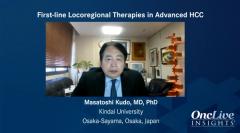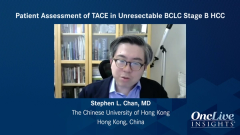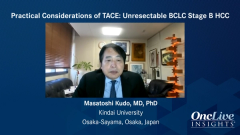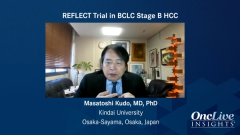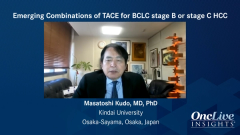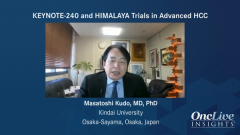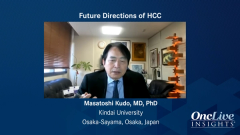
Using AFP as a Biomarker in HCC
Stephen L. Chan, MD, comments on the use of AFP as a predictive biomarker in HCC (hepatocellular carcinoma) and the current use of ramucirumab.
Episodes in this series

Stephen L. Chan, MD: Alpha-fetoprotein [AFP] is in the circulations, used as a biomarker because it had been useful in the diagnosis and screening of HCC [hepatocellular carcinoma]. The AFP also had been shown to a prognostic marker. The higher the AFP, the worse the prognosis, and it has also been useful in monitoring the tumor response. In a number of studies it was shown that the drop in trend of the AFP is associated with improvement in the overall survival after the systemic therapy.
We know the AFP may potentially be used as a predictive biomarker, meaning it can be used to predict the response of a certain kind of drug. From the REACH-2 study, we know the ramucirumab, an anti-VEGFR2 antibody, has been shown to improve the overall survival and also the PFS [progression-free survival] of the patient with a baseline AFP higher than the 400 ng/mL. These benefits were not observed in those patients with low AFP group as shown in the REACH study.
This makes the AFP 1 of the biomarkers for predicting a response in HCC. The rationale is not clear yet. We believe the AFP is a surrogate marker or some subclassification, some subgroup of HCC that is particularly more responsive to this VEGFR2 inhibition. But when we check the AFP, apart from monitoring the treatment response, apart from prognosis, 1 of the important tasks is to see whether these patients are more beneficial from the ramucirumab. This will also be applied clinically now and in the future.
Transcript Edited for Clarity


